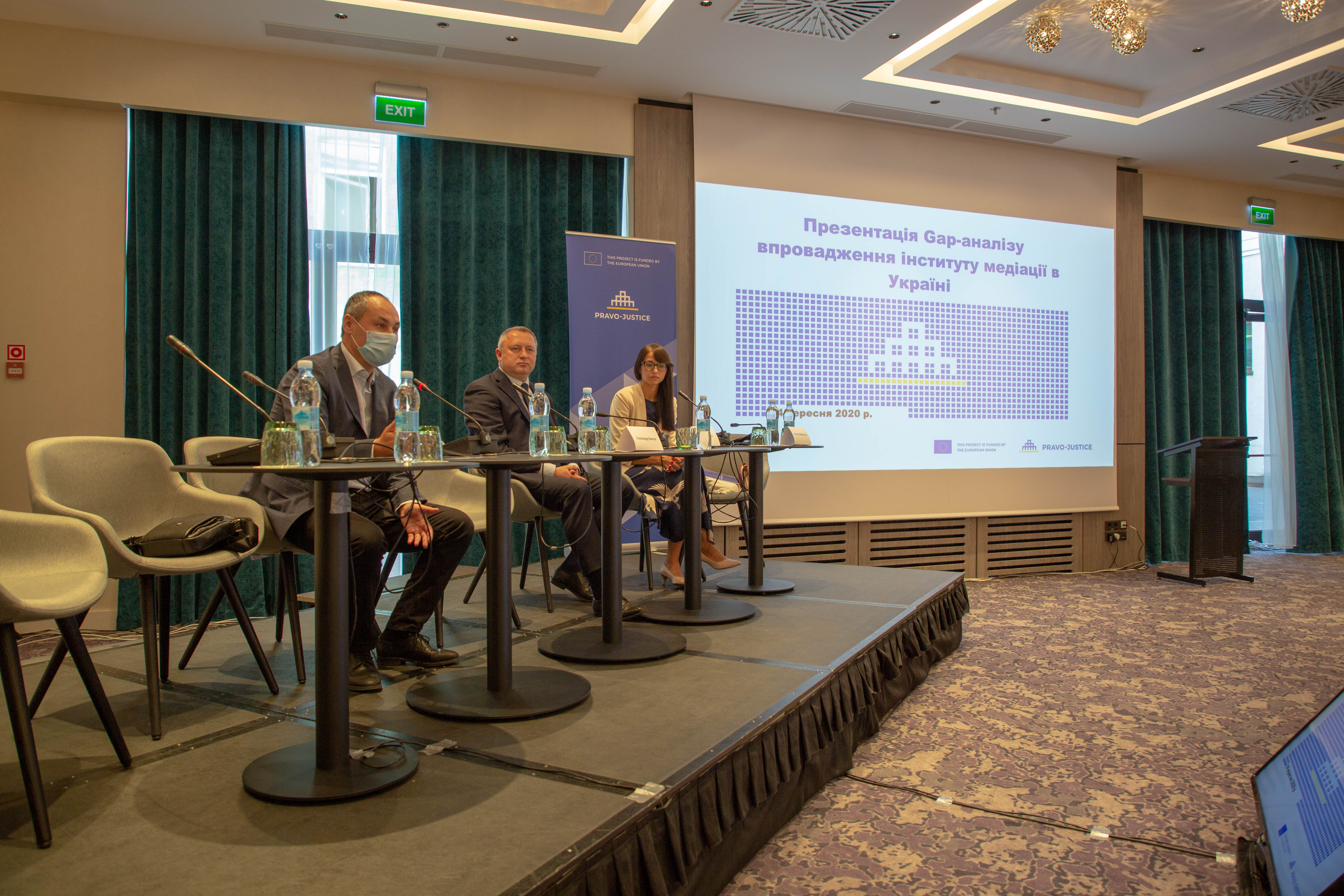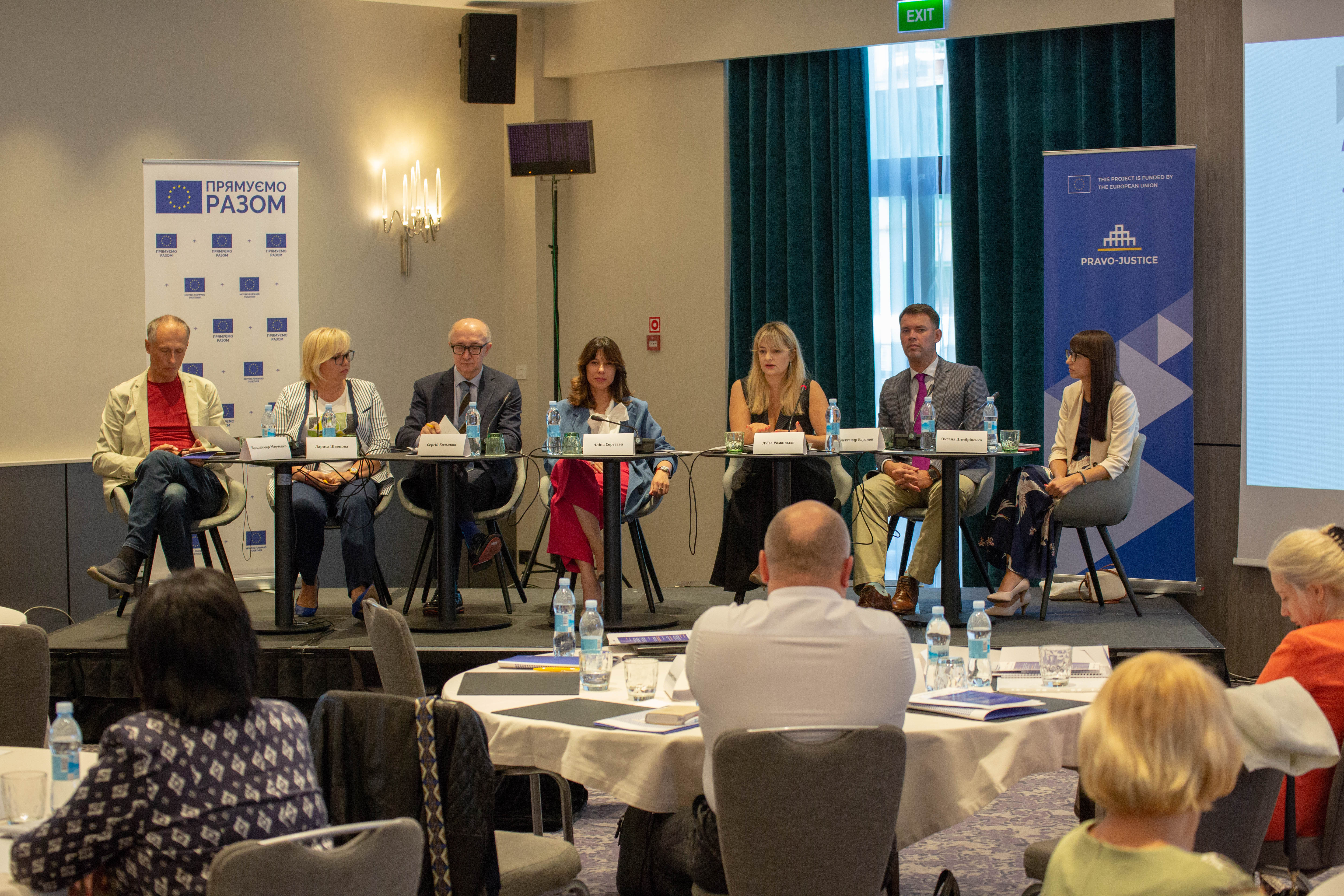EU supports development of an effective mediation system in Ukraine

Development of the mediation system will help to unload the judicial system, provide access to justice and increase the investment potential of Ukraine.
Within the framework of EU Project Pravo-Justice, a group of experts from the Netherlands and Ukraine thoroughly analyzed the draft law on mediation and the current legislation in order to identify the gaps and outline strategic goals for the development of mediation. On 14 September, the results of the Gap Analysis of the Implementation of the Institute of Mediation in Ukraine were presented in Kyiv.
"We are approaching the key stage in the formalization of mediation, namely providing a legal framework for this institute. The main thing is to be ready for the additional measures that will be required to ensure that mediation is used efficiently and adequately. I would emphasize the need to continue the leadership and coordination demonstrated by the Committee on Legal Policy and the Ministry of Justice. We should not have any illusions that the law will solve all the problems. Therefore, the mechanism, which we have created together with you today, should continue working," Dovydas Vitkauskas, the Team Leader of the EU Project Pravo-Justice said.

European experts are helping Ukraine to develop the system of mediation, to implement best practices. For example, there is a tendency in Central and Eastern Europe to assume that the government is responsible for resolving conflicts or complex issues. Since the main premise of mediation is that the parties themselves are responsible for resolving conflicts, mediation is a fairly new concept for Ukraine.
The experts came to the conclusion that there is an urgent need in Ukraine to inform the public and entrepreneurs about the existence of mediation, its advantages and methods of application. This implies the necessity to develop and implement a comprehensive communication system. It should cover the concept of mediation and potential solutions offered by it. Secondly, it should contain information about where one can get acquainted with the current rules, the cost of services, and where to find a mediator. Such publicly available information may encourage all parties to the conflict to review their options and consider mediation as one of them.
Establishment of a single organization (Council) working as a communication platform and an advisory organization can be considered one of the steps to strengthen communication and coordination. It should comprise representatives of all the stakeholders in this area. The suggested organization should have a public website where one could search for mediators. These should preferably be listed with an indication of their specialty or by category (for example, family, domestic, criminal, civil/economic, administrative cases).
The attitude of courts and prosecutors plays a decisive role in the success of mediation. Lawyers are also important in this area because they must know and advise their clients on all available options to resolve disputes (litigation, arbitration, settlement and mediation). The notary play a role in this process too. They can explain to their clients that under certain circumstances mediation may be an appropriate option, which often prevents conflicts. In addition, public and private enforcement officers should be able to offer mediation in order to find practical solutions, and the law should provide for such options.
In contrast to the situation in other countries, mediation in Ukraine lacks significant financial advantage compared to court proceedings, which are not as costly for the parties as in other countries. There should be some incentives for the new mediation tool so that the parties would start considering not only legal proceedings but also the alternative options.
Ukraine is currently in the process of ratifying the UN Mediation Convention (Singapore Convention) dated December 20, 2018. Although this Convention actually regulates only the implementation of agreements resulting from international commercial mediation, it implies that Ukraine adheres to the principles of mediation and undertakes to appoint a competent authority that would be making decisions on granting permission for the implementation of the agreement (or the corresponding refusal).